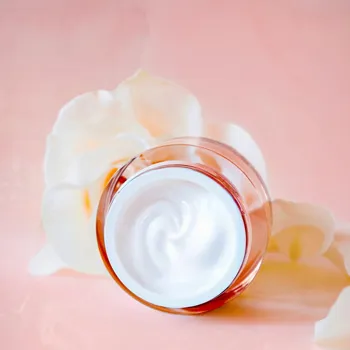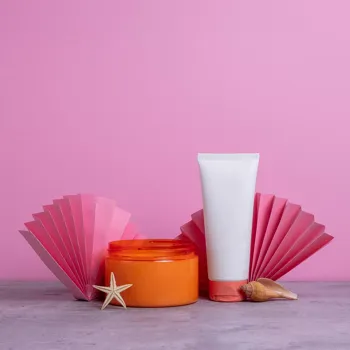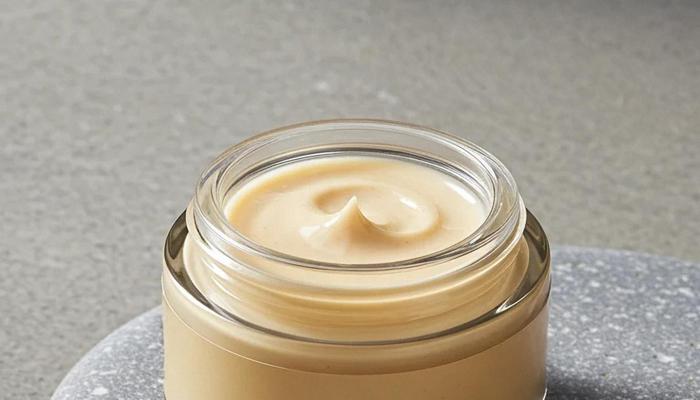Unveil your skin's natural radiance through the power of exfoliation. Discover how to exfoliate right for glowing skin! Read more
Namaste, readers! In the colourful world of skincare, there are so many
products and routines promising glowing skin. But sometimes, we forget the basics. One of the most important, yet often overlooked steps, is exfoliation. Think of your skin like a garden.

You can add the best fertilizers (serums, moisturizers), but if the soil is covered in dead leaves (dead skin cells), the nutrients won't reach the plants. Exfoliation is like raking away those dead leaves, revealing fresh, healthy skin underneath.
It helps clear the path for your other skincare products to work their magic. But how do you do it right? And why is it so important? Let's find out!
Exfoliation removes dead skin for brighter, smoother skin
Exfoliation is the process of removing dead skin cells from the surface of your skin. Our skin naturally sheds these cells, but sometimes they stick around, leading to dullness, clogged pores, and even breakouts. Think about applying a fancy face cream on top of a layer of dead skin.
It's like watering a plant through a plastic sheet – the water barely gets through! Exfoliation helps to remove that barrier. It reveals brighter, smoother skin, allowing your other products to penetrate and work effectively.
Imagine finding a beautiful, hidden mosaic under layers of dust – that’s what exfoliation does for your skin! It unveils your natural radiance.
Regular exfoliation clears pores, improves skin texture, and enhances makeup application
Think of your favorite mithai, now imagine not cleaning your plate after eating it! The leftover sticky residue will attract dust and become unpleasant. Similarly, dead skin cells clog your pores, leading to blackheads and whiteheads.
Regular exfoliation helps to keep your pores clear, preventing these annoying blemishes. Exfoliation also improves skin texture. By removing the rough, uneven surface of dead skin cells, it leaves your skin feeling smoother and softer. Makeup also applies much better on exfoliated skin.
Foundation glides on effortlessly, and your complexion looks more even and radiant.
Types of exfoliation: physical (scrubs) and chemical (acids/enzymes) for smooth skin
Now, let's talk about the "how". There are two main types of exfoliation: physical and chemical. Physical exfoliation involves using tools or scrubs to manually remove dead skin cells. Think of using a washcloth, a scrub with tiny beads, or even a cleansing brush. Always be gentle.
Avoid harsh scrubbing, as this can irritate your skin. Chemical exfoliation uses acids or enzymes to dissolve the bonds between dead skin cells. Common chemical exfoliants include AHAs (alpha-hydroxy acids) like glycolic and lactic acid, and BHAs (beta-hydroxy acids) like salicylic acid.
These are often found in toners, serums, or peels.
Be gentle with exfoliation. Start slow, test chemicals, be consistent
With physical exfoliation, listen to your skin. If it feels irritated or red, you’re being too rough. Try using a softer tool or applying less pressure. Imagine polishing a delicate piece of silver – you wouldn’t scrub it aggressively, would you? For chemical exfoliants, start slowly.
Begin with a low concentration and gradually increase it as your skin gets used to it. Always do a patch test before applying a chemical exfoliant to your entire face. Apply a small amount to an inconspicuous area (like behind your ear) and wait 24 hours to see if you have any reaction.
Remember, consistency is key!
Frequency of exfoliation depends on skin type; adjust based on needs
The frequency of exfoliation depends on your skin type. If you have oily skin, you can exfoliate 2-3 times a week. For dry or sensitive skin, once a week or even every other week is usually sufficient. Listen to your skin – if it feels tight, dry, or irritated, you’re exfoliating too often.
Choose a method that suits your skin type. Physical exfoliation can be too harsh for sensitive skin, while chemical exfoliation might be more suitable. Remember, exfoliation should be a gentle, refreshing experience, not a painful one! After exfoliating, always remember to apply a moisturizer.
Exfoliation boosts skin brightness, absorption, and collagen production
Exfoliation helps brighten your skin. Dead skin cells can make your complexion look dull and tired. Removing them reveals fresh, glowing skin. Exfoliation also enhances the absorption of other skincare products.
By removing the barrier of dead skin cells, your serums and moisturizers can penetrate more effectively. This means you'll see better results from your skincare routine. It also promotes collagen production.
Stimulation from exfoliation can help boost collagen production, which is essential for maintaining skin elasticity and preventing wrinkles. Imagine its like a fresh coat of paint improving the look of the entire house!
Sun protection is key. Wear SPF 30+ after exfoliating for healthy skin
Sun protection is non-negotiable. Exfoliation can make your skin more sensitive to the sun, so always wear sunscreen with an SPF of 30 or higher after exfoliating. Even on cloudy days! A good sunscreen is like a shield protecting your newly revealed skin from harmful UV rays.

Be patient and consistent. Don’t expect overnight miracles. It takes time and consistent effort to see the full benefits of exfoliation. Like growing a beautiful rose garden, it requires regular care and attention. Remember, healthy skin is a journey.
Common exfoliation mistakes: over-exfoliating, wrong type, ignoring skin signals
There are some common mistakes people make with exfoliation. Over-exfoliating is a big one. Exfoliating too often or too vigorously can damage your skin, leading to redness, irritation, and even breakouts. Choosing the wrong type of exfoliant for your skin type is another mistake.
Using a harsh scrub on sensitive skin or a weak chemical exfoliant on oily skin won't give you the desired results. Ignoring your skin's signals is also a common error. Pay attention to how your skin feels after exfoliating. If it feels tight, dry, or irritated, you need to adjust your routine.
Think of it like listening to your body during exercise.
Exfoliation leads to glowing skin by removing dead cells and improving skincare effectiveness
Exfoliation is a simple yet powerful tool for achieving healthy, glowing skin. By removing dead skin cells, you can reveal a brighter complexion, prevent breakouts, and improve the effectiveness of your other skincare products.
Choose the right method for your skin type, exfoliate gently, and always remember to moisturize and protect your skin from the sun. Regular exfoliation is like spring cleaning for your skin, leaving it refreshed, rejuvenated, and ready to face the world and shine with a natural radiance.
Happy exfoliating, and may your skin glow with health and beauty!
AI Generated Content. Glance/InMobi shall have no liability for the content










